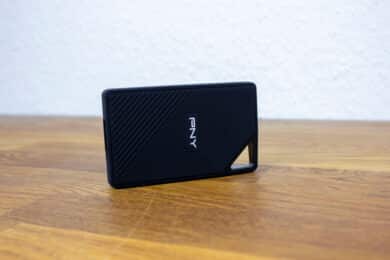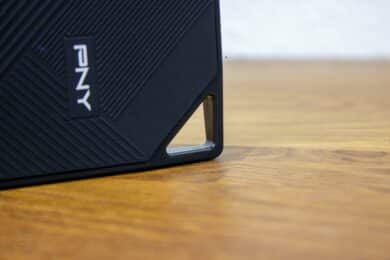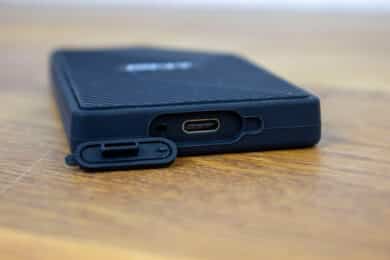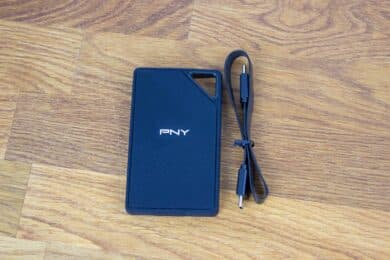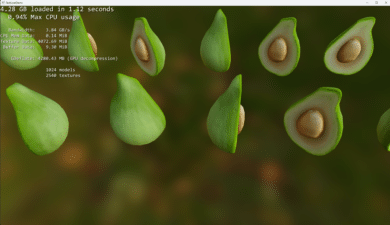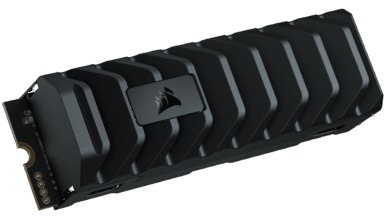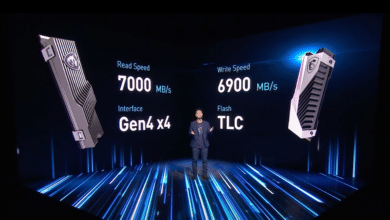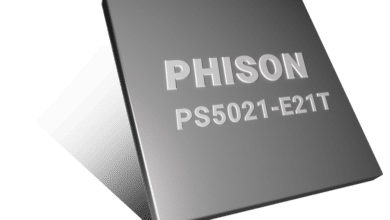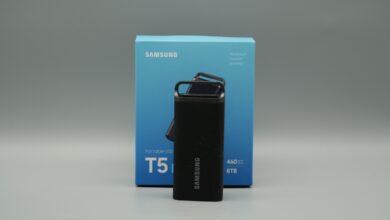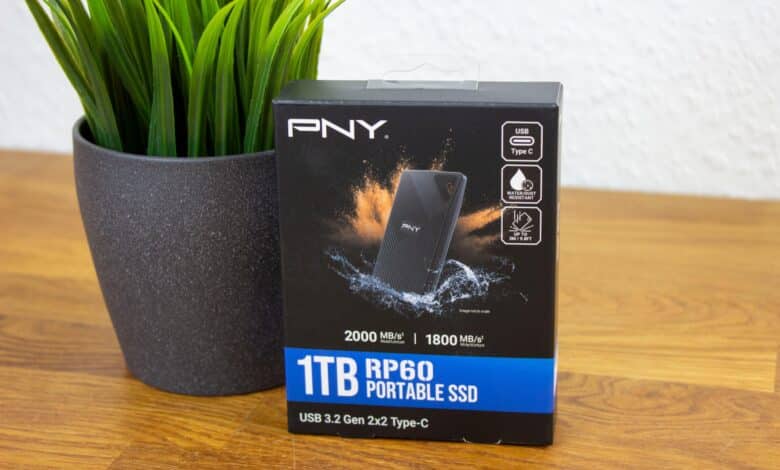
SSDs are becoming increasingly affordable and can be connected to virtually any device via USB-C. They can therefore also be used as a storage medium when you are on the move. Not only do you have plenty of storage space with you, but depending on the model, you even have high transfer rates. This is what the PNY RP60 offers you. The technical details promise a lot and we are testing the SSD on the go for you.
Technical data
| The product | PNY RP60 |
| Storage capacity | 1 TB (test model); 2 TB |
| Interface | USB 3.2 Gen 2×2 |
| Max. Read/write speed (MB/s) | 2.000 / 1.800 |
| Special features |
shock-resistant from a drop height of up to 3 m, water and dust-proof (IP65) |
| Scope of delivery | external SSD, USB-C to USB-C cable, Acronis True Image Data Protection software |
| Dimensions | 100 x 60.3 x 12.4 mm ( W x H x D) |
| Weight | 56 g |
| Warranty period | 3 years warranty |
| Price |
Price: € 133.18 * |
We have already tested a few external SSDs(WD Black P40, Samsung T9, Crucial X10 Pro). The PNY RP60 should have similar data rates as the other test devices. In addition, PNY offers a number of options for protecting the SSD with the rubber casing.
The dimensions and weight also suggest that the PNY RP60 is intended for use on the move. At 97.2 mm x 59.9 mm x 12.4 mm, it is roughly the size of a credit card, just a little thicker. And the data carrier only weighs 56 grams.
The casing of the RP60 is completely black and rubberized. The top is textured and features the manufacturer’s lettering. We also find the name of the manufacturer and the number of our storage capacity on the back.
PNY has attached an eyelet at the top right for quick access to your data. You can use this to attach the SSD to a backpack, for example, and quickly connect it to a camera to move data. With the rather short cable, however, this could be quite fiddly.
There is a small rubber cover on the underside of the PNY RP60. The USB-C port is hidden behind it. USB 3.2 Gen 2×2 is used, so make sure that your device supports this in order to be able to use the full bandwidth. Without the aforementioned rubber cover, there is of course no IP65 protection.
A brief digression on USB 3.2 Gen 2×2: All four available lanes are used for data transmission (2x RX (receive) and 2x TX (transmit). This enables a theoretical bandwidth of up to 20 Gbit/s – twice that of USB 3.2 Gen 2 and four times that of Gen 1. Only two lanes are used here. Your hardware, for example the mainboard, must of course support this standard!
The PNY RP60 is compatible with a wide range of end devices. Specified are iPhone 15 (Pro), iPad (Pro), Android devices, laptops and gaming consoles. We plugged the external SSD into a corresponding Windows computer for benchmarks, and an Android smartphone (Android 12) also worked without any problems.
Benchmarks PNY RP60 USB 3.2 Gen2x2
Read data rates of up to 2,000 MB/s should be possible, write data rates of 1,800 MB/s. The right hardware is important to achieve these values. USB 3.2 Gen2x2 must be supported. In our text with CrystalDiskMark, we come close to the manufacturer’s specifications.
1.997.25 MB/s is our value for reading, 1,723.36 MB/s is achieved for writing – a satisfactory result. This is the data from the sequential read/write. With small data (SEQ128KQ32T1) we achieve a slightly lower result – 1868.56 and 1712.45 MB/s read/write.
Also important is the random read and write (RND4K), where good values are also achieved, even if we are behind comparable SSDs such as the WD Black P40 and Samsung T9.
CrystalDiskMark
We get almost the same values in the AS SSD benchmark. 1.at 845.25 MB/s, we are slightly above the manufacturer’s specifications when writing, and we get 1,957.43 MB/s when reading. Slightly lower than in the previous benchmark. The PNY RP60 keeps up with the Samsung T9 in the 4K rate, even if the results are slightly lower.
The read access times are around 0.098 ms. In the other direction are 0.102 ms. Overall, we arrive at a score of 1215, a good result.
AS SSD
Gaming performance
To at least simulate the gaming performance, we can use the DirectStorageBenchmark. The PNY RP60 achieves an average bandwidth of 3.84 GB/s in the Avocado test. Here we are just behind the Samsung T9, well behind the Crucial X10 Pro.
Conclusion on the PNY RP60
The performance of the PNY RP60 is impressive. The benchmark results are on a par with the Samsung T9. Sometimes a little above, sometimes a little below. There is a clear difference in performance in the DirectStorageBenchmark (Avocados).
The data rates are of course still good with the appropriate hardware, especially as it is an external SSD. The PNY RP60 is definitely suitable for portable use. Among other things, the protection against dust and water (IP65) ensures this. On the other hand, the shock-resistant housing also helps. You can drop the SSD from three meters and it will withstand it.
